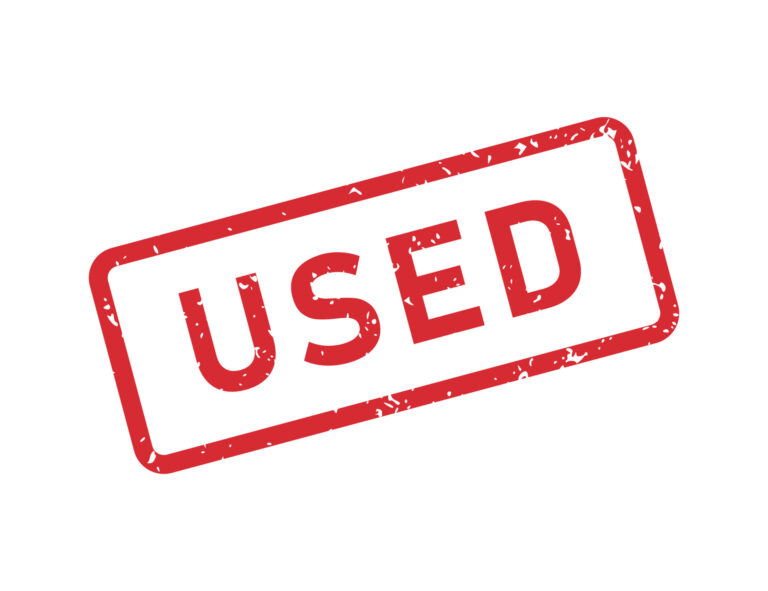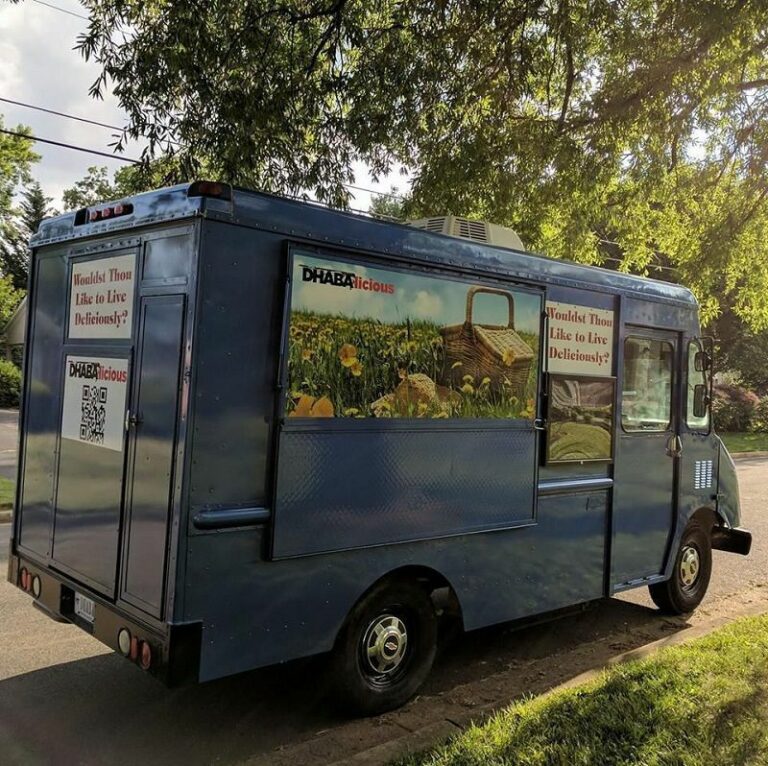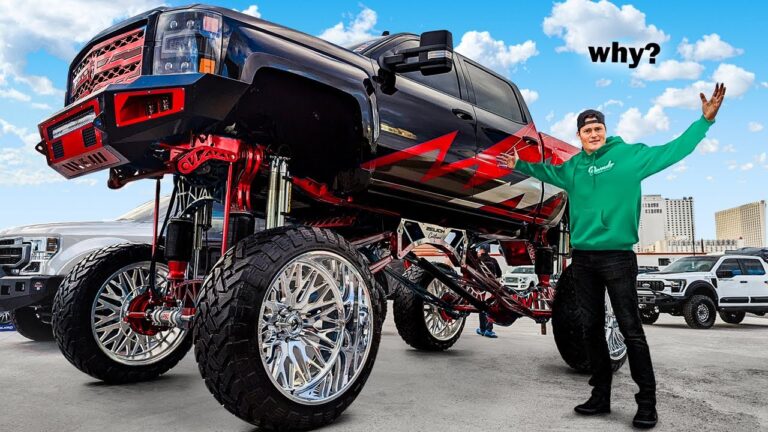Huge Trucks For Sale: Your Comprehensive Guide to Acquiring Industrial Giants
Huge Trucks For Sale: Your Comprehensive Guide to Acquiring Industrial Giants cars.truckstrend.com
Introduction: Unlocking the Power of the Colossal
In the world of commerce, industry, and specialized transport, few assets command as much attention and utility as "huge trucks." These aren’t your everyday pickup trucks; we’re talking about the titans of the road and the behemoths of construction sites, mines, and logistics hubs. From the iconic semi-trucks that form the backbone of global supply chains to gargantuan dump trucks moving mountains of earth, and specialized vehicles designed for extraordinary tasks, huge trucks are indispensable tools for businesses requiring immense power, payload capacity, and durability.
Huge Trucks For Sale: Your Comprehensive Guide to Acquiring Industrial Giants
The market for huge trucks for sale is vast and dynamic, encompassing everything from brand-new, cutting-edge models to robust, pre-owned workhorses. Whether you’re a burgeoning logistics company expanding its fleet, a construction firm needing to move massive materials, a mining operation extracting raw resources, or a specialized hauler tackling oversized loads, finding the right huge truck is a critical investment. This comprehensive guide aims to demystify the process of acquiring these formidable machines, offering insights into their types, benefits, crucial considerations, and a practical roadmap for a successful purchase.
Defining "Huge": Categories of Industrial Powerhouses
When we talk about "huge trucks," we’re generally referring to vehicles designed for heavy-duty commercial, industrial, or specialized applications, characterized by their substantial Gross Vehicle Weight Ratings (GVWR) and Gross Combination Weight Ratings (GCWR). These are broadly categorized as:
-
Heavy-Duty Commercial Trucks (Class 8): These are the workhorses of the highway and city streets, with a GVWR exceeding 33,000 lbs (14,969 kg).
- Semi-Trucks (Tractors): The most recognizable "huge truck," designed to pull trailers. Sub-types include day cabs for local hauls, sleeper cabs for long-distance routes, and specialized heavy-haul tractors for oversized loads.
- Dump Trucks: Essential for construction, mining, and landscaping, these trucks feature an open-box bed that can be raised to dump material. They come in various axle configurations (tandem, tri-axle, quad-axle) to handle different capacities.
- Concrete Mixers: Used to transport and mix concrete to construction sites. They are characterized by a rotating drum.
- Refuse/Garbage Trucks: Specialized vehicles for waste collection, featuring compaction mechanisms and various loading systems (front, rear, side).
- Flatbed Trucks: Equipped with a flat, open bed for transporting large or irregularly shaped cargo that doesn’t require enclosure.

-
Off-Highway Trucks: These giants are purpose-built for extreme environments like mines, quarries, and large construction projects, where public road use is not a primary concern.
- Rigid Dump Trucks: Enormous, purpose-built trucks for hauling massive quantities of ore, dirt, or rock in mining and quarrying operations. They are not road-legal.
- Articulated Dump Trucks (ADTs): Flexible, all-wheel-drive vehicles with a hinge between the cab and the dump body, designed for rough, uneven terrain and poor ground conditions.
-
Specialized Industrial Trucks: These are highly specialized vehicles designed for unique heavy-duty tasks.
- Crane Trucks: Trucks equipped with a crane for lifting and moving heavy objects.
- Logging Trucks: Designed to transport felled timber from forests.
- Wreckers/Tow Trucks (Heavy-Duty): Capable of towing and recovering other large trucks and heavy machinery.
Why Invest in a Huge Truck? Benefits and Applications
The decision to acquire a huge truck is driven by specific operational needs and the inherent benefits these vehicles offer:
- Unmatched Payload and Hauling Capacity: Their primary advantage is the ability to transport massive quantities of goods or materials that conventional vehicles simply cannot handle.
- Durability and Longevity: Built for demanding conditions, huge trucks are engineered for robustness, ensuring a long operational life, especially with proper maintenance.
- Cost-Effectiveness (Especially Used): While new huge trucks represent a significant investment, the used market offers substantial savings, allowing businesses to acquire essential assets without the full capital outlay. This also means a potentially quicker return on investment.
- Specialized Functionality: Many huge trucks come equipped with specialized bodies, attachments, or hydraulic systems tailored for specific industries, enhancing efficiency and productivity.
- Economic Backbone: These trucks are the literal engines of many industries, from construction and agriculture to logistics and resource extraction, enabling economic activity on a grand scale.
- Immediate Availability: The used market often provides immediate access to vehicles, bypassing the lead times associated with new truck orders, crucial for urgent project needs.
Key Considerations Before Purchasing Your Giant
Acquiring a huge truck is a substantial decision that requires thorough due diligence. Here are the critical factors to consider:
-
Budgeting and Financing:
- New vs. Used: New trucks offer the latest technology and warranties but come at a premium. Used trucks are more affordable but require careful inspection.
- Financing Options: Explore specialized lenders for commercial vehicles, leasing options, and traditional bank loans. Understand interest rates, down payments, and repayment terms.
- Total Cost of Ownership (TCO): Factor in not just the purchase price, but also insurance, registration, fuel, maintenance, repairs, tires, and potential upgrades.
-
Intended Use and Specifications:
- Match the Truck to the Job: What will the truck primarily be used for? What type of cargo, weight, and terrain will it encounter? This dictates required GVWR, engine power, transmission type, axle configuration, and specialized equipment.
- Payload and Towing Capacity: Ensure the truck’s specifications meet or exceed your operational requirements to avoid overloading and ensure safety and compliance.
- Route and Terrain: Will the truck operate on highways, rough construction sites, or off-road? This impacts tire choice, suspension, and overall chassis robustness.
-
Condition and Maintenance History (Especially for Used):
- Comprehensive Inspection: Beyond a visual check, arrange for a professional, third-party inspection by a qualified heavy-duty mechanic. This includes engine, transmission, axles, brakes, tires, frame, suspension, and hydraulic systems.
- Maintenance Records: Request detailed service records. A well-documented history of routine maintenance and repairs is a strong indicator of a truck’s longevity and reliability.
- Mileage and Engine Hours: These are key indicators of wear. High mileage/hours aren’t necessarily deal-breakers if maintenance has been diligent, but they warrant closer scrutiny.
- Fluid Analysis: Consider oil and coolant analysis to detect internal engine or transmission issues.
-
Emissions Standards and Regulations:
- Local and Federal Compliance: Be aware of current and upcoming emissions regulations (e.g., EPA, CARB in California). Older trucks might not meet modern standards, leading to operational restrictions or costly upgrades.
- DOT Compliance: Ensure the truck meets all Department of Transportation safety regulations for commercial vehicles.
-
Seller Reputation and Location:
- Reputable Dealers/Sellers: Purchase from established dealerships or sellers with good reputations. Check reviews and references.
- Logistics of Transport: Consider the cost and logistics of transporting the truck from the seller’s location to yours, especially for large, non-road-legal vehicles.
Where to Find Huge Trucks For Sale
The market for huge trucks is diverse, offering several avenues for potential buyers:
- Online Marketplaces and Classifieds:
- Dedicated Truck Sites: Websites like TruckPaper.com, CommercialTruckTrader.com, and IronPlanet.com (for auctions) specialize in heavy equipment and commercial trucks.
- General Classifieds: While less common for the largest trucks, sites like eBay Motors or even local classifieds can sometimes list individual sales.
- Heavy Truck Dealerships: Both new and used heavy truck dealerships (e.g., Volvo, Freightliner, Kenworth, Peterbilt, Mack, Western Star) often have extensive inventories and offer financing and service options.
- Auctions:
- Public Auctions: Held by companies like Ritchie Bros. Auctioneers or IronPlanet, these offer a wide selection of used equipment from various sellers, often at competitive prices.
- Liquidation/Government Surplus Auctions: Opportunities to find trucks from bankrupt companies or government fleets.
- Private Sellers: Sometimes, individual owner-operators or smaller businesses sell their trucks directly. These can offer good deals but often come with less support or guarantees than dealerships.
- Fleet Sales/Remarketing Departments: Large companies or rental fleets often sell off older vehicles as they cycle in new ones.
The Buying Process: A Step-by-Step Guide
Navigating the purchase of a huge truck can be complex. Follow these steps for a streamlined experience:
- Define Your Needs and Budget: Clearly outline the truck type, specifications, and maximum budget (including all associated costs).
- Research and Identify Potential Trucks: Use online resources, contact dealerships, and monitor auction listings. Create a shortlist of promising candidates.
- Initial Inquiry and Information Gathering: Contact sellers to get more detailed photos, maintenance records, VIN, and any known issues. Ask specific questions based on your needs.
- Physical Inspection and Test Drive: If the truck looks promising, arrange to inspect it in person. Pay attention to the engine sound, transmission shifting, brake feel, and overall handling. Check for leaks, rust, or structural damage.
- Professional Third-Party Inspection: This is non-negotiable for used trucks. Hire an independent heavy-duty mechanic to perform a thorough pre-purchase inspection. This investment can save you thousands in unexpected repairs.
- Negotiation: Armed with the inspection report, negotiate the price. Be prepared to walk away if the deal isn’t right.
- Financing and Paperwork: Secure financing if needed. Carefully review all purchase agreements, titles, lien releases, and warranty information (if applicable). Ensure all necessary permits and registrations are handled.
- Transport and Delivery: Plan how the truck will get from the seller’s location to yours. This may involve driving it yourself (if road-legal and you have the proper CDL), or arranging for a specialized heavy-haul transport company.
Challenges and Solutions
- Challenge: Finding the exact truck that matches specific, niche requirements.
- Solution: Be patient and cast a wide net across various selling platforms. Consider custom modifications if a perfect match isn’t found, factoring in the cost.
- Challenge: Assessing the true condition of a used truck.
- Solution: Always invest in a professional third-party inspection. Do not rely solely on seller descriptions or photos.
- Challenge: Securing appropriate financing for a large commercial asset.
- Solution: Work with lenders specializing in heavy equipment and commercial vehicles. Have a solid business plan and financial history ready.
- Challenge: Logistics and cost of transporting a huge truck.
- Solution: Get multiple quotes from specialized heavy-haul transport companies. Factor this into your budget early on.
- Challenge: Post-purchase maintenance and finding qualified mechanics.
- Solution: Research reputable heavy-duty service centers in your operational area beforehand. Budget for ongoing maintenance and potential initial repairs.
Tips for a Successful Purchase
- Don’t Rush: A hasty decision can lead to costly mistakes. Take your time to research, inspect, and negotiate.
- Get Everything in Writing: All agreements, warranties, and promises should be documented in the purchase contract.
- Factor in Hidden Costs: Remember to budget for transport, registration fees, taxes, insurance, and any immediate repairs or maintenance items.
- Network: Talk to other truck owners, operators, and industry professionals. Their insights can be invaluable.
- Verify VIN and Title: Ensure the VIN on the truck matches the documentation and that the title is clear of any liens.
- Consider Resale Value: While not the primary driver, thinking about future resale can influence your choice of make, model, and condition.
Huge Trucks For Sale: Representative Price Table (Used Market)
Note: Prices for huge trucks are highly variable and depend significantly on brand, model, year, mileage/hours, engine type, transmission, overall condition, maintenance history, specialized features, and market demand. The ranges below are illustrative for the used market in good to excellent condition.
| Truck Type (Category) | Example Models/Uses | Condition (Used) | Price Range (USD) | Key Factors Influencing Price |
|---|---|---|---|---|
| Semi-Trucks (Class 8) | Day Cabs, Sleepers, Flatbeds, Dry Vans | Good (5-10 yrs old, 500k-800k miles) | $25,000 – $80,000 | Engine (HP, Mfg), Transmission (Auto/Manual), Mileage, Age, Brand, Maintenance History, Sleeper/Day Cab |
| Excellent/Low Mileage (3-5 yrs old, <500k miles) | $80,000 – $180,000+ | |||
| Dump Trucks | Tandem Axle, Tri-Axle, Quad-Axle | Good (5-15 yrs old) | $30,000 – $90,000 | Axle Configuration, Body Capacity, Engine Hours, Wear & Tear on body/hoist, Brand |
| Excellent (Under 5 yrs old) | $90,000 – $200,000+ | |||
| Concrete Mixers | Front Discharge, Rear Discharge | Good (7-15 yrs old) | $40,000 – $100,000 | Drum Capacity, PTO system, Chassis Condition, Maintenance, Rust |
| Excellent (Under 7 yrs old) | $100,000 – $250,000+ | |||
| Refuse/Garbage Trucks | Front Loader, Rear Loader, Side Loader | Good (8-15 yrs old) | $35,000 – $120,000 | Compaction Mechanism, Body Type, Engine Hours, Hydraulic System, Condition of packer/hopper |
| Excellent (Under 8 yrs old) | $120,000 – $280,000+ | |||
| Specialized Heavy Haulers | Crane Trucks, Logging Trucks, Wreckers | Good (10-20 yrs old) | $50,000 – $150,000 | Specialized Equipment (Crane Capacity, Winch, Boom), PTO, Age, Certifications, Condition of specialized gear |
| Excellent (Under 10 yrs old) | $150,000 – $500,000+ | |||
| Off-Highway (Articulated Dump Trucks) | Construction, Mining, Quarries | Fair (High Hours/Wear, 10-20 yrs old) | $70,000 – $150,000 | Engine Hours, Tire Condition (very expensive), Driveline, Body Integrity, Suspension, Articulation Joint |
| Good (5-10 yrs old) | $150,000 – $350,000+ |
Frequently Asked Questions (FAQ) about Huge Trucks For Sale
Q1: What is the average lifespan of a huge truck?
A1: With proper maintenance, a heavy-duty truck (like a semi-truck) can last over 1 million miles or 15-20 years. Off-highway trucks are often measured in engine hours and can last for tens of thousands of hours. The key is consistent, professional maintenance.
Q2: Do I need a special license to operate a huge truck?
A2: Yes, for most commercial huge trucks, you will need a Commercial Driver’s License (CDL) with appropriate endorsements (e.g., air brakes, tanker, hazardous materials, doubles/triples) depending on the truck’s GVWR and what it’s hauling. Off-highway trucks may not require a CDL but demand specialized operator training.
Q3: Is it better to buy a new or used huge truck?
A3: This depends on your budget, operational needs, and risk tolerance. New trucks offer warranties, the latest technology, and better fuel efficiency, but at a higher cost. Used trucks are more affordable and offer a quicker return on investment, but require more thorough inspection and may incur higher maintenance costs.
Q4: How do I finance a huge truck purchase?
A4: Options include traditional bank loans, specialized commercial truck lenders, and leasing agreements. Many heavy truck dealerships offer in-house financing. Prepare a strong business plan and have your financial statements in order.
Q5: What are common hidden costs when buying a huge truck?
A5: Hidden costs can include transport fees (especially for non-road-legal or distant purchases), registration and titling fees, sales tax, insurance, pre-purchase inspection costs, initial maintenance/repairs, and any necessary upgrades to meet specific operational or regulatory requirements.
Q6: Can I buy a huge truck directly from a fleet or government agency?
A6: Yes, many large fleets and government agencies regularly sell off their older vehicles through auctions or direct sales programs. These can be good sources for well-maintained trucks, as these organizations typically follow strict maintenance schedules.
Q7: What should I look for during a pre-purchase inspection?
A7: A professional inspector will check the engine (oil pressure, coolant, leaks, turbo), transmission (shifting, fluid), axles, brakes (pads, drums/rotors, air system), tires (tread, wear patterns), frame (cracks, bends), suspension, steering, electrical system, hydraulic systems (if applicable), and look for signs of previous accidents or poor repairs.
Conclusion: Driving Your Business Forward with the Right Truck
Acquiring a huge truck for sale is a strategic decision that can significantly impact your operational capabilities and bottom line. Whether it’s a semi-truck tirelessly hauling goods across continents, a dump truck moving earth on a massive construction project, or a specialized vehicle performing niche tasks, these machines are cornerstones of numerous industries.
By understanding the diverse categories of huge trucks, carefully weighing the benefits against the crucial considerations, and following a structured buying process, you can navigate this complex market with confidence. Remember to prioritize thorough inspections, budget for all associated costs, and leverage reputable sellers and financing options. With the right preparation and due diligence, you can secure a powerful, reliable asset that will drive your business forward for years to come, truly unlocking the colossal potential of these industrial giants.





